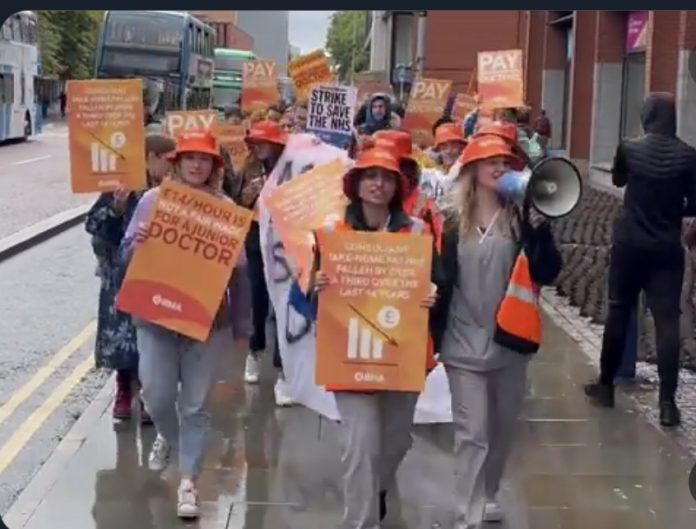The longest strike in the history of the NHS is getting under way this morning as junior doctors take part in a six-day walkout in the NHS in England.
Junior doctors are striking from 7am on 3 January to 7am on 9 January 2024
During today’s strike action say Greater Manchester’s Combined Authority, “our priority will be patient safety, and ensuring those who need urgent care are able to get it. NHS 111 online can help you choose which service is right for you.”
Industrial action comes in the middle of the winter period where the NHS is already under significant pressure from factors such as seasonal illnesses including covid and flu, and following the Christmas and New Year holidays, where many people mix socially which presents the risk of spreading infections.
Most recent data shows that people in hospital with flu has jumped to an average of 942 each day last week – almost six times the number compared to the week before.
The NHS has prepared extensively and earlier than ever before for the busier winter period with hundreds more beds in place, more ambulances on the road and 24/7 system control centres rolled out across the country to manage additional pressure.
NHS National Medical Director Professor Sir Stephen Powis said: “This January could be one of the most difficult starts to the year the NHS has ever faced.
“Six consecutive days of industrial action comes at one of our busiest periods – the action will not only have an enormous impact on planned care, but comes on top of a host of seasonal pressures such as covid, flu, and staff absences due to sickness – all of which is impacting on how patients flow through hospitals.
“Our colleagues across the health service are doing their very best for patients every day with extensive preparations in place, but there’s no doubt they are starting 2024 on the back foot – not only will action impact next week, it will continue to have a serious impact in the weeks after, as we recover services and deal with additional demand.
“However, I cannot stress enough that people who need care must come forward as they usually would – using 999 and A&E in life threatening emergencies and 111 online for everything else.”







